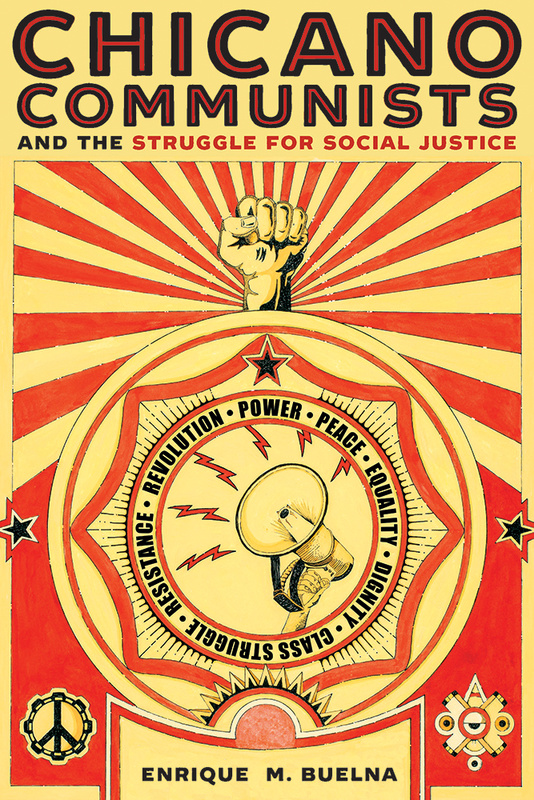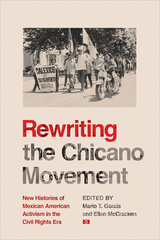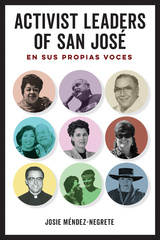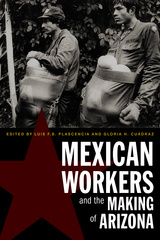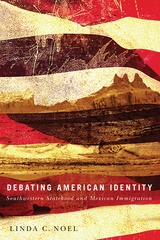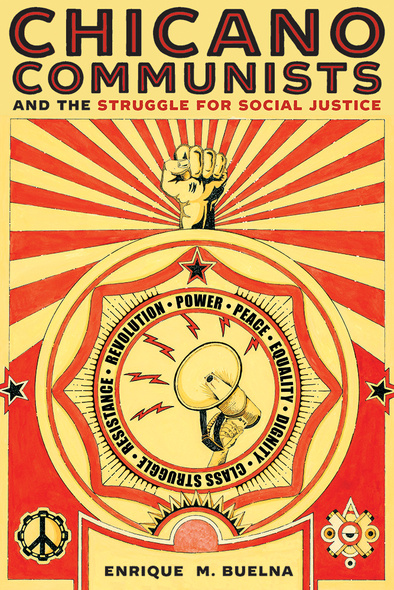
304 pages, 6 x 9
31 b&w illustrations
Paperback
Release Date:09 Jul 2019
ISBN:9780816540662
Chicano Communists and the Struggle for Social Justice
The University of Arizona Press
In the 1930s and 1940s the early roots of the Chicano Movement took shape. Activists like Jesús Cruz, and later Ralph Cuarón, sought justice for miserable working conditions and the poor treatment of Mexican Americans and immigrants through protests and sit-ins.
Lesser known is the influence that Communism and socialism had on the early roots of the Chicano Movement, a legacy that continues today. Examining the role of Mexican American working-class and radical labor activism in American history, Enrique M. Buelna focuses on the work of the radical Left, particularly the Communist Party (CP) USA.
Buelna delves into the experiences of Cuarón, in particular, as well as those of his family. He writes about the family’s migration from Mexico; work in the mines in Morenci, Arizona; move to Los Angeles during the Great Depression; service in World War II; and experiences during the Cold War as a background to exploring the experiences of many Mexican Americans during this time period.
The author follows the thread of radical activism and the depth of its influence on Mexican Americans struggling to achieve social justice and equality. The legacy of Cuarón and his comrades is significant to the Chicano Movement and in understanding the development of the labor and civil rights movements in the United States. Their contributions, in particular during the 1960s and 1970s, informed a new generation to demand an end to the Vietnam War and to expose educational inequality, poverty, civil rights abuses, and police brutality.
Lesser known is the influence that Communism and socialism had on the early roots of the Chicano Movement, a legacy that continues today. Examining the role of Mexican American working-class and radical labor activism in American history, Enrique M. Buelna focuses on the work of the radical Left, particularly the Communist Party (CP) USA.
Buelna delves into the experiences of Cuarón, in particular, as well as those of his family. He writes about the family’s migration from Mexico; work in the mines in Morenci, Arizona; move to Los Angeles during the Great Depression; service in World War II; and experiences during the Cold War as a background to exploring the experiences of many Mexican Americans during this time period.
The author follows the thread of radical activism and the depth of its influence on Mexican Americans struggling to achieve social justice and equality. The legacy of Cuarón and his comrades is significant to the Chicano Movement and in understanding the development of the labor and civil rights movements in the United States. Their contributions, in particular during the 1960s and 1970s, informed a new generation to demand an end to the Vietnam War and to expose educational inequality, poverty, civil rights abuses, and police brutality.
(This book is) an important study of Mexican American communists that brings this crucial historical phenomenon further into the light.'—Jimmy Patino, Pacific Historical Review
‘Buelna argues correctly that Mexican American radicals are underrepresented in written history. As Buelna’s work suggests, the inclusion of Mexican American progressives in U.S. history changes our understandings of civil rights struggles, unionization, and the Chicano Movement of the twentieth and early twenty-first centuries.’ —Devra Weber, Department of History, University of California, Riverside
‘This well-researched study contributes to the fields of California history, Mexican American history, labor history, and race and ethnic studies. The exploration of radical activism by a Mexican American leader is especially significant.’ —Ricardo Romo, author of East Los Angeles: History of a Barrio
Enrique M. Buelna is a professor in the History Department at Cabrillo College in Santa Cruz, California. His research interests include working-class history, civil rights, social movements, immigration, race, class, and oral history.
List of Illustrations
Preface: The Gadflies
Acknowledgments
Introduction: Making Noise
1. Finding the Movement
2. Insurgent Community: Justice for Salcido
3. Marching Toward a People’s World
4. The Mexican Question
5. Revolt on Princeton Street
Conclusion: Unbroken Threads
Epilogue: Organic Intellectual
Notes
Index
Preface: The Gadflies
Acknowledgments
Introduction: Making Noise
1. Finding the Movement
2. Insurgent Community: Justice for Salcido
3. Marching Toward a People’s World
4. The Mexican Question
5. Revolt on Princeton Street
Conclusion: Unbroken Threads
Epilogue: Organic Intellectual
Notes
Index

